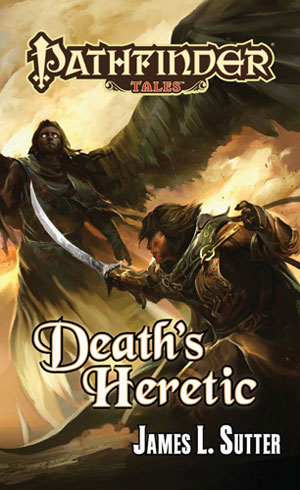You'll probably have noticed that a lot of crazy nonsense took place
here and then migrated over
here when Jen and I put our feet in piranha-infested waters. This isn't the first time Jen and I have played emotional bees and frolicked in the convoluted mess of gender politics. But that's not really the point of this post. Rather, I'd like to use the aforementioned links as illustrative examples of my central point:
Deleting a comment or banning a commenter on a private website is not censorship.
Since Liz Bourke's original post, a number of people have almost joyously proclaimed they have been censored when they were banned from Tor.com (or would be banned from The Skiffy and Fanty Show -- one individual on Baen assumed we would delete anything he wrote simply because he would disagree with us; the comment is still there).
Neither of these things, however, constitute censorship, in part because private spaces have specialized rules which determine what can and cannot be said. If someone waltzes into your house and starts babbling at you about why Obama is a bad choice for President or Gingrich will repeal child labor laws, you have every right to remove that person from your home and prevent them from entering again. This act is defended by the U.S. Constitution, by our laws, and by our social codes. Few would call that censorship. A house is a private space, inside which you make the rules for interaction (provided they follow the rules from the outside -- no murdering in your house).
The same concept applies to websites that are privately owned or run.* Much like the privacy guaranteed in your home, you equally are guaranteed privacy on your website. That means that you are able to determine who can and cannot see your posts, who can and cannot comment, and so on. In fact, Google does much of this on its own by snagging spam comments from the aether and casting them to the dark abyss (the same with Wordpress, etc.). None of these acts are censorship, since nothing has been done to prevent you from being able to speak on the Internet. Provided you still have a place
to speak, your rights have not been violated. You are entitled to your opinion and your voice, but not to a listening audience.
Censorship on the web, thus, is rather tricky. At what point does the removal of content become censorship? I'm not sure there are any easy answers to this question. Because the Internet is vast, if not nearly infinite, there are few boundaries to free speech in the U.S. The tables turn when you go to a place like China, where hackers serve as police officers against online dissent, where content from main sources are removed from Google's search database, and so on. Is that censorship?
I would argue that the distinction between personal space and censorship seems to follow this logic: so long as the avenues of discussion remain open, your rights have not been infringed; so long as websites themselves are subject to removal without reasonable cause,** you're looking at censorship.
This seems like a relatively simple concept to understand, but plenty of people cry "censorship" anyway. Perhaps they do so as an emotional reaction, or because they really believe that the 1st Amendment means you can say whatever you want wherever you want. The truth is that private spaces come with limitations and rules, many of them unspoken. Many websites don't have comment policies, running instead on the tolerance levels of the owners. Those tolerance levels will vary considerably.
In other words, think of your website as a digital house. If you have no problem letting anyone come in and say whatever they want, then good for you. But if you want to limit discussions or focus them, doing so in your own space means you're simply taking control of your house. And if we're being honest, most of us have house rules that we expect others to follow (and house rules we set for ourselves when we visit other people's homes). The difference between a house and the Internet, however, is that the Internet guarantees anonymity and/or distance. Bravery is necessarily an attending element.
-------------------------------------------
*I don't know whether censorship applies to government websites, though there aren't many government websites with comment threads, as far as I can remember.
**For example, I wouldn't consider the removal of a website that shares pirated files (not links, but files) as censorship, since free speech does not extend to violating the law.




